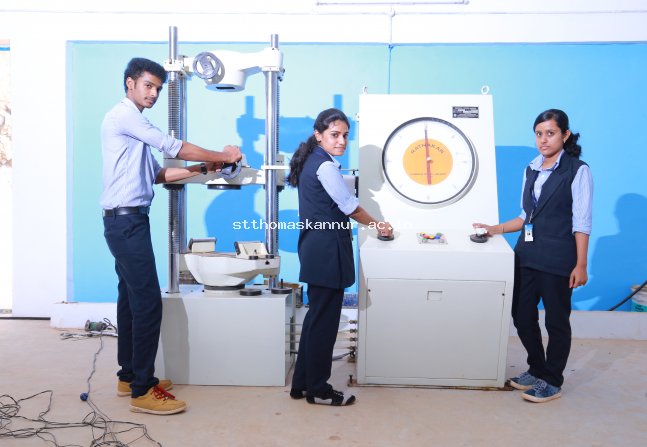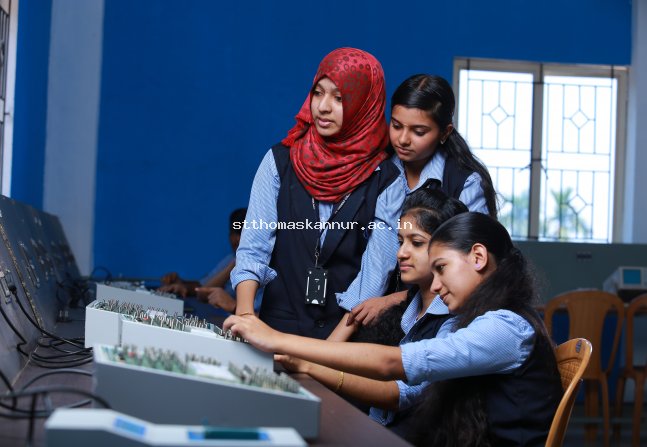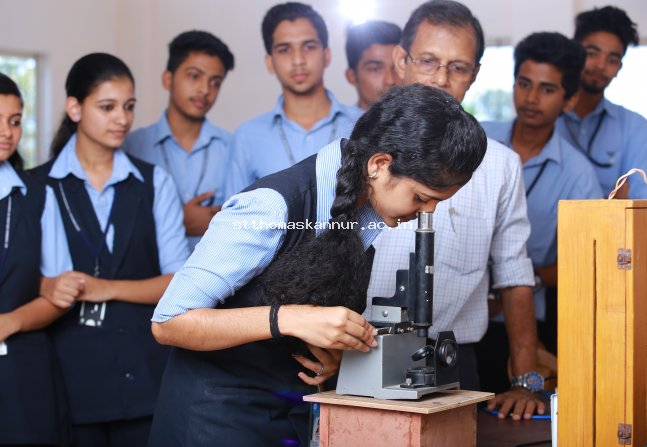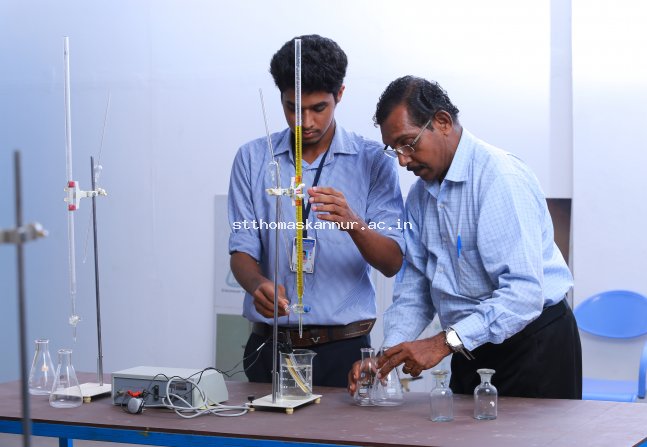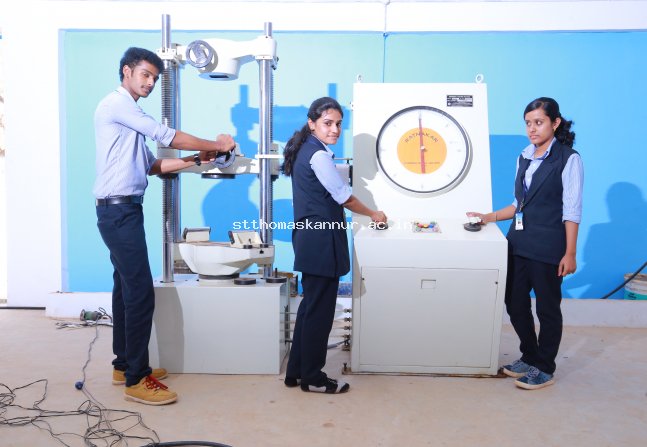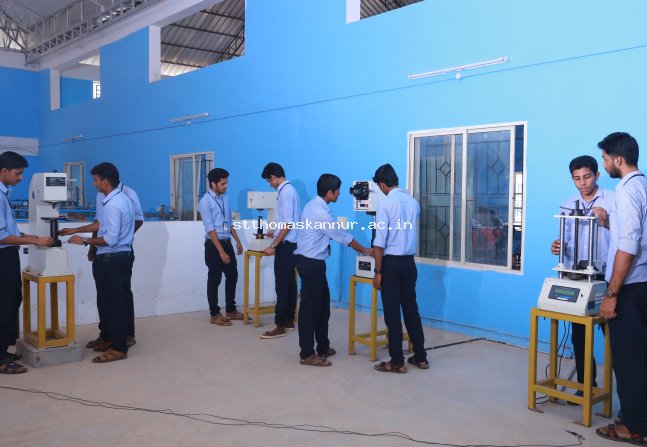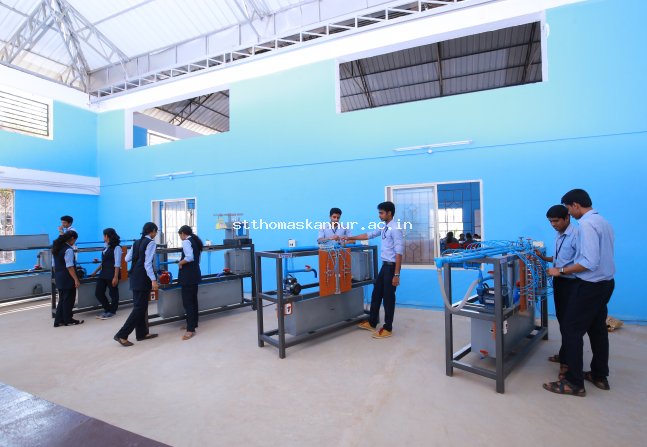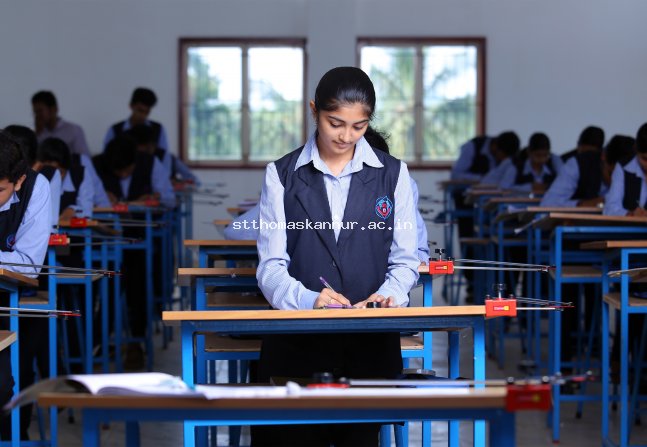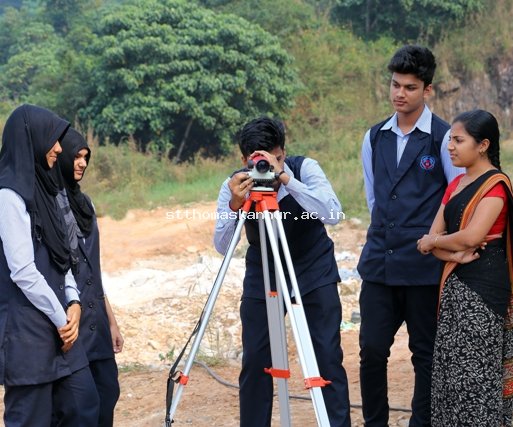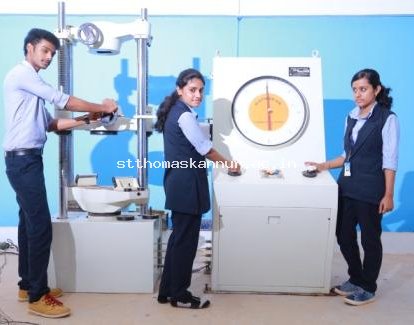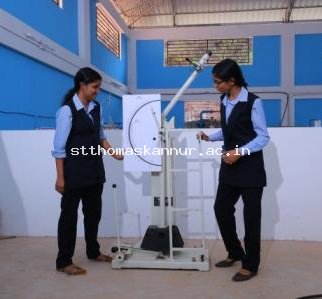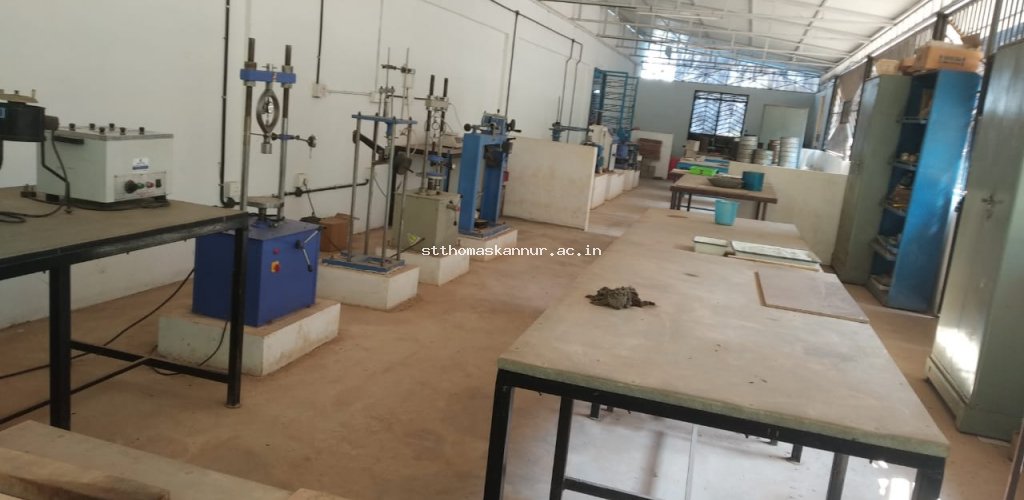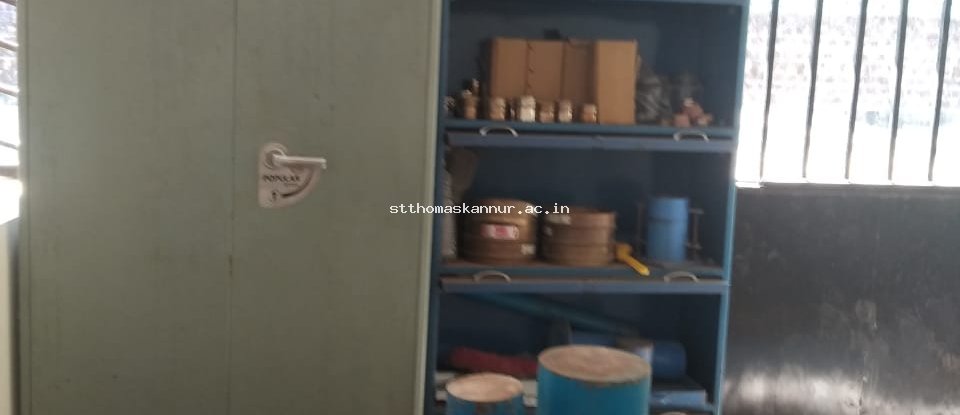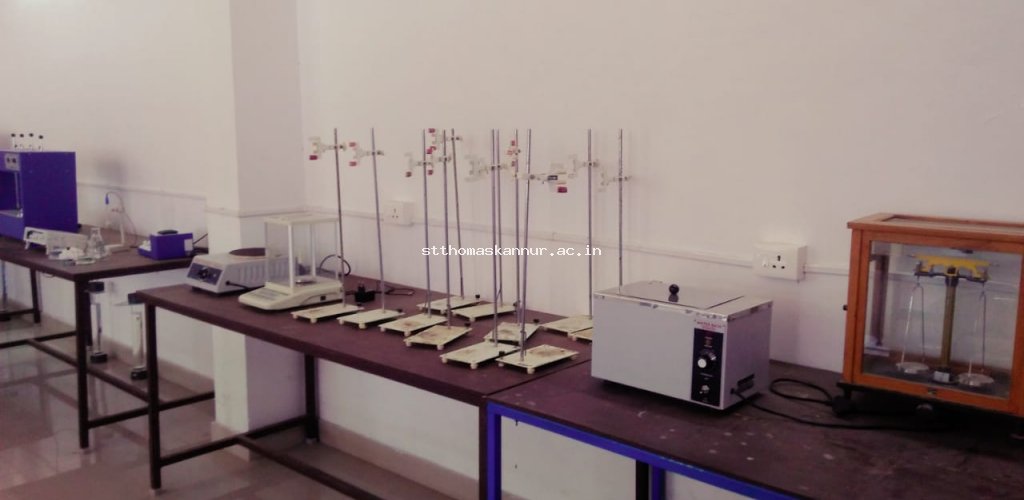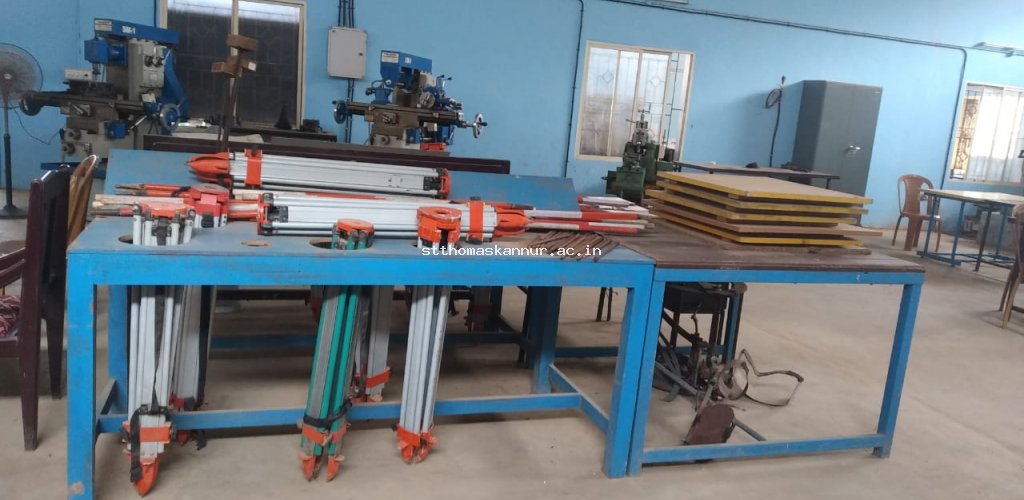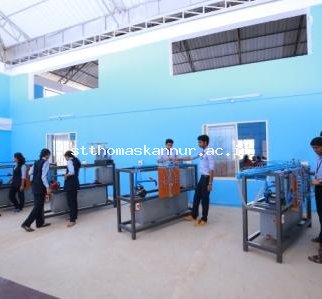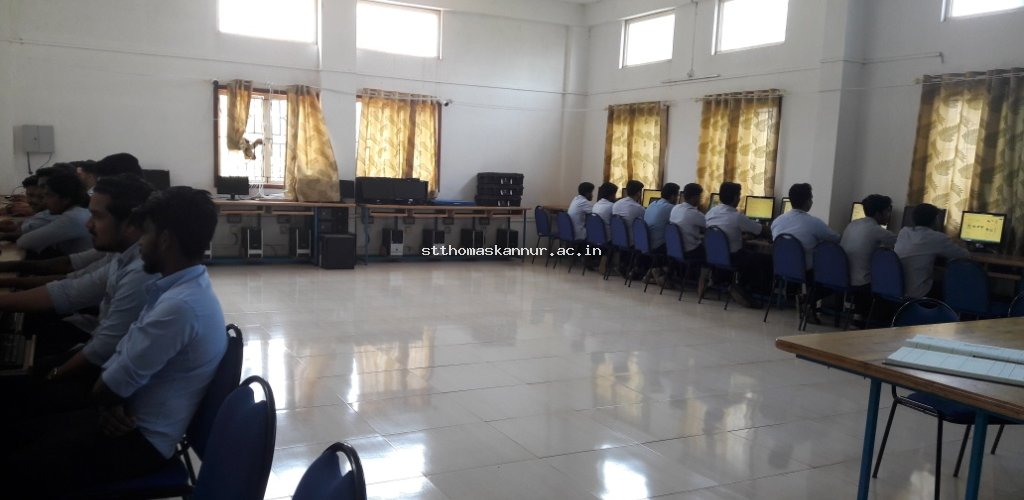The demand for trained professionals in Civil Engineering is obvious, omnipresent and ever increasing. Practical knowledge is the ultimate aim & aspiration of the Civil Engineering Department. The Civil Engineering department is furnished with an excellent infrastructure to enrich the students in various fields of Civil Engineering like building, construction, strength of materials etc. Today is an era "interdisciplinary approach" and everybody must have a minimum basic knowledge of all the branches and discipline. The department is taking more focused and multidimensional efforts to make the "foundation of the students" as strong and safe as possible.
Vision
To grow as a globally recognized centre in Civil Engineering with a focus on innovation and research by combining technical and ethical qualities.
Mission
M1: Professional Skills
To provide a better environment to encourage innovative and research thinking among students.
M2: Life-Long Learning
Instill in students contemporary knowledge in order to achieve academic and professional excellence with global perspective through experience of lifelong learning.
M3: Engage with Society
Impart a sense of community responsibility and leadership qualities to better meet the challenges of sustainable growth.
PROGRAM EDUCATIONAL OBJECTIVES (PEO)
PEO1
Achieve excellence in the professional practices of civil engineering by utilizing the acquired knowledge and technical skills supported by modern day tools.
PEO2
Participation in decision making and nation building by adopting energy efficient and sustainable practices in civil engineering.
PEO3
Encourage innovative thinking and entrepreneurship by research and higher studies in advanced areas of civil engineering.
PROGRAM SPECIFIC OUTCOMES (PSO)
PSO1
To solve engineering problems related to civil engineering by systematic techniques, skills and tools to meet the ever growing needs of sustainable infrastructural development.
PSO2
Design and build civil engineering-based systems in the context of structural, geotechnical, transportation and environmental requisites.
Program Outcomes (PO)
Engineering Graduates will be able to:
PO1 Engineering knowledge: Apply the knowledge of mathematics, science, engineering fundamentals, and an engineering specialization to the solution of complex engineering problems.
PO2 Problem analysis: Identify, formulate, review research literature, and analyze complex engineering problems reaching substantiated conclusions using first principles of mathematics, natural sciences, and engineering sciences.
PO3 Design/development of solutions: Design solutions for complex engineering problems and design system components or processes that meet the specified needs with appropriate consideration for the public health and safety, and the cultural, societal, and environmental considerations.
PO4 Conduct investigations of complex problems: Use research-based knowledge and research methods including design of experiments, analysis and interpretation of data, and synthesis of the information to provide valid conclusions.
PO5 Modern tool usage: Create, select, and apply appropriate techniques, resources, and modern engineering and IT tools including prediction and modeling to complex engineering activities with an understanding of the limitations.
PO6 The engineer and society: Apply reasoning informed by the contextual knowledge to assess societal, health, safety, legal and cultural issues and the consequent responsibilities relevant to the professional engineering practice.
PO7 Environment and sustainability: Understand the impact of the professional engineering solutions in societal and environmental contexts, and demonstrate the knowledge of, and need for sustainable development.
PO8 Ethics: Apply ethical principles and commit to professional ethics and responsibilities and norms of the engineering practice.
PO9 Individual and team work: Function effectively as an individual, and as a member or leader in diverse teams, and in multidisciplinary settings.
PO10 Communication: Communicate effectively on complex engineering activities with the engineering community and with society at large, such as, being able to comprehend and write effective reports and design documentation, make effective presentations, and give and receive clear instructions.
PO11 Project management and finance: Demonstrate knowledge and understanding of the engineering and management principles and apply these to one’s own work, as a member and leader in a team, to manage projects and in multidisciplinary environments.
PO12 Life-long learning: Recognize the need for, and have the preparation and ability to engage in independent and life-long learning in the broadest context of technological change.
Department Advisory Board
Dr. Shinu Mathew John-Principal, STM (Chairman)
Principal, St. Thomas College of Engineering
Sivapuram, Mattanur, KannurMr. Rijo Thomas Jose - CEO, STM (Management Member)
CEO, St. Thomas College of Engineering
Sivapuram, Mattanur, KannurMrs. Vijila Balakrishnan-HOD, Civil, STM (Convener)
Assistant Professor / H.O.D, CE
St. Thomas College of Engineering
Sivapuram, Mattanur, Kannur
email id: hodce@stthomaskannur.ac.inMrs. Deepthi K - Assistant Professor, Civil, STM (Co-Convener)
Assistant Professor ,CE
St. Thomas College of Engineering
Sivapuram, Mattanur, Kannur
email id: deepthi@stthomaskannur.ac.inMr. Prem Anand C - Deputy Manager, Learning and Development- ULCCS Ltd.
Deputy Manager,
email id: prem.anand@ulccs.comDr. Leena A.V - Principal, SNGCET Payyanur, Kannur (Academic Member)
Principal, SNGCET Payyanur, Kannur,
email id: principal@sngcet.ac.inDr. Vandana Sreedharan - Professor, Civil, GCE Kannur(Academic Member)
Professor and HOD
Department of Civil Engineering, GCE Kannur
email id: vandanasreedharan@gcek.ac.inMr. Rajan K K - Retd. Assistant Engineer PWD- Panoor, Kannur(Industrial Expert)
Retd. Assistant Engineer PWD, Panoor, Kannur
email id: kkrkavil@gmail.comMs. Athira K Raman - Kannur(Alumini Member)
PhD scholor, Government college of Technology, Coimbatore
email id: athirakraman4145@gcek.ac.in
PROGRAM ASSESSMENT COMMITTEE
Ms. Vijila Balakrishnan, Assistant Professor and HoD , Chairman
Ms. Roopa Balakrishnan,Assistant Professor,Program Coordinator
Ms. Jean Mary Jacob,Assistant Professor, DQAC Coordinator
Dr. Arun Kumar Selvarajan, Associate Professor, Senior Faculty Member
Ms. Deepthi K,Assistant Professor, Stream Coordinator
Ms. Athira B Krishnan,Assistant Professor, Faculty Advisor
Ms. S Sruthi, Student (2022-26 batch - STM22CE033), Student Representative
CAREER OPPORTUNITIES
Structural Engineer, Design Engineer, Environmental Engineer, Planning Engineer
MAJOR RECRUITERS
Amerigo Structural Engineers Pvt. Ltd, RFSCO Infrastructure Pvt. Ltd, D Square Architects, Real One Infrastructures, Aarbee Structures Pvt. Ltd, Paradigm IT Pvt Ltd.
SPECIAL INTEREST GROUPS
The Department has following special interest groups to promote various research and development activities
S3, S4 - Autocad
Promoter: Ms. Athira B KrishnanS5, S6 – Quality Control and Quality Assurance
Promoter: Ms. Roopa BalakrishnanS7, S8 – Building Information Modelling (BIM)
Promoter : Dr. Arun Kumar S

